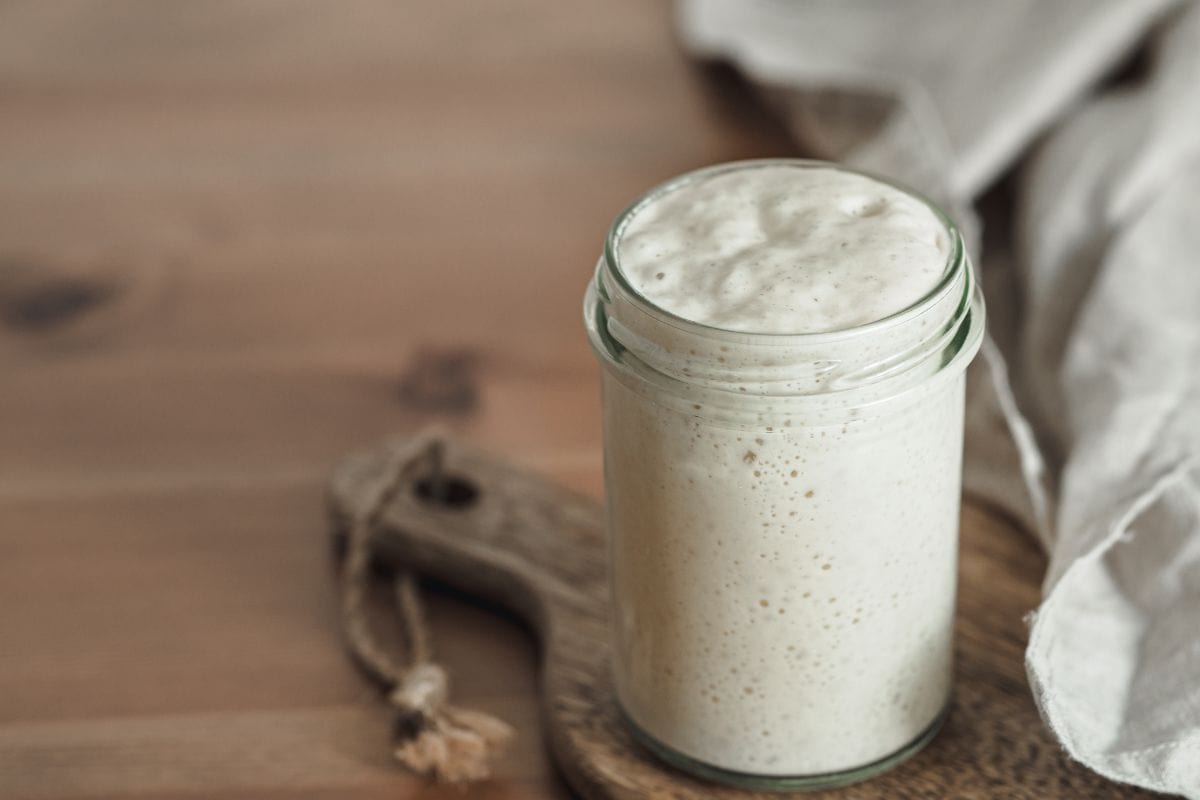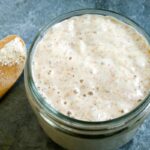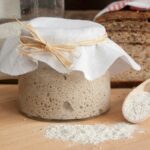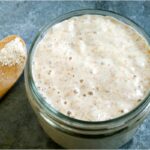Making sourdough bread requires the inclusion of a lot of yeast and plenty of flour, to help the bread to rise just right!
Many people assume that, in order to bake a loaf of sourdough bread, you will need to purchase plenty of commercial yeast, which you can mix in.
However, the truth is that you can make sourdough by making use of sourdough starter, which you can make ahead of time.
However, many people often find themselves confused as to what sourdough starter actually is, and how you use a sourdough starter, right out of the fridge.
Luckily, if you have been pondering any number of these questions, then we are here to provide you with all of the answers you could need about sourdough starter, and how it can be used to make sourdough bread.
Is It Okay to Use Sourdough Starter Right Out Of The Fridge?
Luckily, if you have some fresh sourdough starter that you want to use for baking a perfect sourdough, you can rest assured that it is okay to use sourdough starter right out of the fridge, while still cold!
Does Sourdough Starter Need To Warm Up Before Use?
There is no need to allow the sourdough starter to warm up to room temperature.
The resulting bread will be totally safe to eat, making it great for baking if it is your only option.
What Is Sourdough Starter?
Put simply, sourdough starter is a term used to describe a live culture which is made up of fermented water and fresh flour.
In order to bake a fresh starter, you will want to mix flour and water together, which will kickstart the fermentation process.
The process of making sourdough starter can take quite a long time, as some sourdough starter can take a whole 7 days to fully ferment.
As the Sourdough starter is fermenting, becoming a mature starter, you will want to keep adding extra fresh flour, which allows the friendly bacteria to continue cultivating.
When Is The Best Time To Make Use Of Sourdough Starter?
The best time to make use of a sourdough starter is generally around a few hours after it has been fed, and when it is around its peak of fermentation.
You will generally know that the recently fed starter is at its best when you notice bubbles throughout the starter.
This is proof that you have created a healthy starter for your sour dough.
Your starter may take multiple weeks to become fully active, so it is important to exercise patience, to allow your starter to fit, while you feed your active starter consistently week on week.
When you feed your own sourdough starter straight up, it is best not to overthink it, and allow the sourdough starter straight up to feed at its own pace, while you wait for it to come together.
Do You Need To Extract Sourdough Starter?
As the sourdough starter ferments, you will need to occasionally extract some of the starter every now and again, so that you always have at least 60 grams left of active unfed sourdough starter.
Once you have done this you can keep feeding the sourdough starter, by adding flour, and plenty of warm water.
Every time you feed your starter, you will want to discard some of the mixture.
This will usually occur on the third day, around the third feeding of your starter.
Every time you notice the sourdough starter beginning to fall, in terms of volume, you will want to add more flour and water.
It is best to stick with a strict feeding schedule to ensure that your starter is perfect, and it helps to bring sourdough the perfect flavor.

What Is The Brown Stuff That Shows Up In Sourdough Starter?
As you patiently feed the sourdough starter, you will likely notice a brown liquid appearing on the surface.
This liquid has a more sour flavor now, which is a result of the fermentation.
This is a sign that your sourdough starter needs feeding with fresh flour, as it occurs naturally with the presence of yeast.
If you notice this liquid, don’t panic, and simply pour it off before continuing to feed your starter, before then placing your cold starter back to sit for a little longer.
How Do You Know When Sourdough Starter Is Finished?
You will know that your sourdough starter is done fermenting when you notice that there is double the volume, and the entire surface of the mixture has plenty of bubbles.
Sourdough starter should be very airy, even when at room temp. This helps to ensure that your finished bread dough is able to rise in the oven.
What Should You Do When Your Sourdough Starter Is Done?
Once your sourdough starter is done, you will want to add it to a clean jar, and this can then be your refrigerated starter that can be added to your sourdough directly from the fridge.
At this point, you will be a regular sourdough baker, making amazing loaves with a recipe and multiple sourdough starters on the go.
To Wrap Up
There you have it!
Making cold sourdough starter is not only easy, but also convenient because you can easily drop any finished cold sourdough starter or sourdough starters from the fridge straight into your dough, and use it in any sourdough bread recipe.
Generally, it is best to create a full fed starter which can then be used to bake bread, rather than using an unfed starter straight from the fridge that still needs extra time to sit and ferment.
However, you should also keep in mind that there is plenty of wiggle room when it comes to creating sourdough starter and creating sourdough bread itself.
Sometimes it can take just a week for the mixture to ferment, and sometimes it can occur over long periods.
Just make sure to check on your sourdough starter every few hours as you wait to ensure that it is cultivating at a healthy rate, as this will help you to know when to feed it, and how far along the process you are.
Taking your time with the process will result in sourdough that is more able to rise.
Frequently Asked Questions
How Long Should Sourdough Starter Be Out Of Fridge Before Using?
If you feel like allowing your sourdough starter to sit before being used, you will want to allow it to do so for around 2 to 4 hours, until up to room temperature.
How Long After Feeding Can I Put Sourdough Starter In The Fridge?
You can put sourdough starter into the fridge right after feeding if you wish.
If you want it to sit out for longer, then you will want to be sure to refrigerate it within 4 hours.










